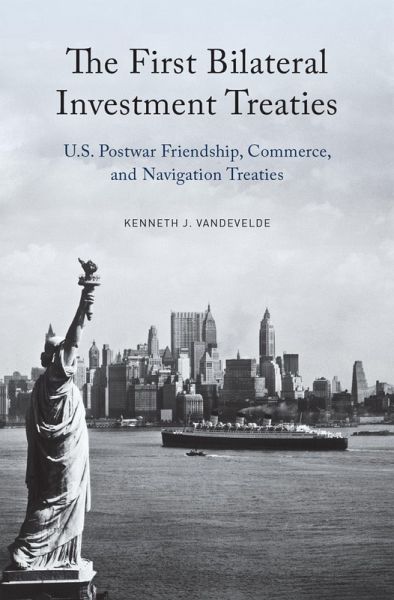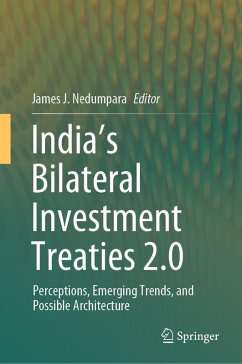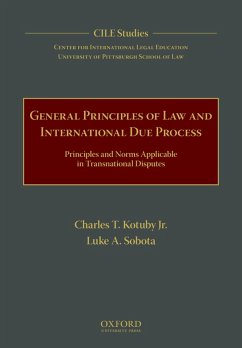
The First Bilateral Investment Treaties (eBook, PDF)
U.S. Postwar Friendship, Commerce, and Navigation Treaties

PAYBACK Punkte
24 °P sammeln!
The First Bilateral Investment Treaties is the first and only history of the U.S. postwar Friendship, Commerce, and Navigation (FCN) treaty program, and focuses on the investment-related provisions of those treaties. The 22 U.S. postwar FCN treaties were the first bilateral investment treaties ever concluded, and nearly all of the core provisions in the modern network of more than 3000 international investment agreements worldwide trace their origin to these FCN treaties. This book explains the original understanding of the language of this vast network of agreements which have been and contin...
The First Bilateral Investment Treaties is the first and only history of the U.S. postwar Friendship, Commerce, and Navigation (FCN) treaty program, and focuses on the investment-related provisions of those treaties. The 22 U.S. postwar FCN treaties were the first bilateral investment treaties ever concluded, and nearly all of the core provisions in the modern network of more than 3000 international investment agreements worldwide trace their origin to these FCN treaties. This book explains the original understanding of the language of this vast network of agreements which have been and continue to be the subject of hundreds of international arbitrations and billions of dollars in claims. It is based on a review of some 32,000 pages of negotiating history housed in the National Archives. This book demonstrates that the investment provisions were founded on the New Deal liberalism of the Roosevelt-Truman administrations and were intended to acquire for U.S. companies investing abroad the same protections that foreign investors already received in the United States under the U.S. Constitution. It chronicles the failed U.S. attempt to obtain protection for investment through the proposed International Trade Organization (ITO), providing the first and only history of the investment-related provisions in the ITO Charter. It then shows how the FCN treaties, which dated back to 1776 and originally concerned with establishing trade and maritime relations, were re-conceptualized as investment treaties to provide investment protection bilaterally. This book is also a work of diplomatic history, offering an account of the negotiating history of each of the 22 treaties and describing U.S. negotiating policy and strategy.
Dieser Download kann aus rechtlichen Gründen nur mit Rechnungsadresse in A, B, BG, CY, CZ, D, DK, EW, E, FIN, F, GR, HR, H, IRL, I, LT, L, LR, M, NL, PL, P, R, S, SLO, SK ausgeliefert werden.













